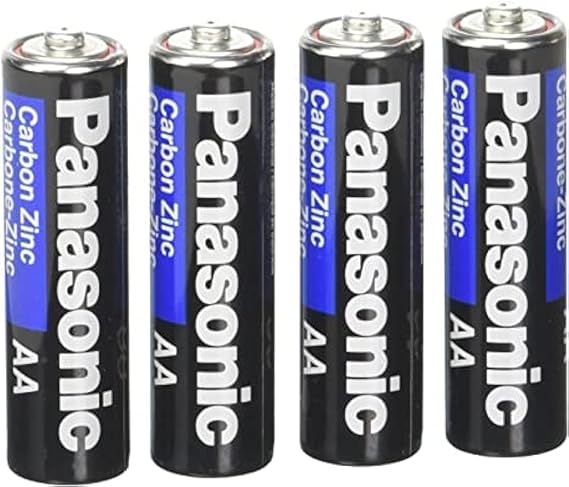In this article, we will explore the top battery choices that provide long-lasting power, reliability, and compatibility, enabling your wall clock to operate smoothly. Let’s dive in and discover the best batteries for wall clocks.
1. Importance of Choosing the Right Battery
Selecting the right battery for your wall clock is crucial for maintaining its accuracy and functionality. Different batteries offer varying levels of power, longevity, and compatibility. By understanding the available options, you can make an informed decision that ensures your wall clock functions optimally.

2. Alkaline Batteries: Reliable Power Source
Alkaline batteries are widely regarded as a reliable choice for wall clocks. They are affordable and provide a consistent power supply, resulting in accurate timekeeping. Alkaline batteries offer a long shelf life, ensuring they will be ready to use whenever you need them. Additionally, they are available in various sizes, making them compatible with most wall clock models.
3. Lithium Batteries: Extended Lifespan
Lithium batteries are known for their exceptional lifespan, making them an excellent option for wall clocks. They have a significantly longer life compared to alkaline batteries, which means fewer battery changes and reduced maintenance. Lithium batteries also perform well in extreme temperatures, making them suitable for outdoor wall clocks or clocks in areas with fluctuating temperatures.
4. Rechargeable Batteries: Cost-effective and Environmentally Friendly
For those looking for a cost-effective and eco-friendly option, rechargeable batteries are worth considering. These batteries can be reused multiple times, reducing waste and saving money in the long run.
Rechargeable batteries are available in various chemistries, such as nickel-metal hydride (NiMH) and lithium-ion (Li-ion), providing different power levels and lifespans. However, it’s essential to ensure compatibility with your wall clock before using rechargeable batteries.
5. Button Cell Batteries: Compact and Versatile
Button cell batteries, also known as coin cell batteries, are commonly used in small devices, including some wall clocks. These batteries are compact, making them suitable for slim-profile or miniature wall clocks. Button cell batteries are available in different sizes and chemistries, such as silver oxide and lithium. It’s crucial to check your wall clock’s specifications to determine the appropriate button cell battery size and type.
6. Considerations for Battery Selection
When choosing the best battery for your wall clock, several factors should be taken into account:
6.1. Clock Type and Size
Different wall clocks have varying power requirements. It’s essential to check the manufacturer’s recommendations or the clock’s user manual to determine the compatible battery size and type.
6.2. Power Longevity
Consider the expected battery life and the clock’s power consumption. If you prefer less frequent battery changes, opt for batteries with extended longevity.
6.3. Environmental Factors
If your wall clock is placed in an area with extreme temperatures or high humidity, choose batteries that can withstand these conditions to ensure consistent performance.
6.4. Budget and Sustainability
Evaluate your budget and environmental concerns. Alkaline batteries are cost-effective, while rechargeable batteries are eco-friendly and provide long-term savings.
7. Tips for Prolonging Battery Life
To maximize the lifespan of your wall clock batteries, consider the following tips:
- Keep the clock away from direct sunlight or heat sources.
- Regularly clean the battery terminals to maintain good contact.
- Replace the batteries as soon as you notice a decrease in performance or inaccurate timekeeping.
- If using rechargeable batteries, follow the manufacturer’s instructions for proper charging and storage.
Conclusion
Choosing the best batteries for your wall clock ensures accurate timekeeping and uninterrupted functionality. Alkaline batteries offer reliability, while lithium batteries provide an extended lifespan. Rechargeable batteries are cost-effective and environmentally friendly, while button cell batteries are compact and versatile.
Consider factors such as clock type, power longevity, environmental conditions, budget, and sustainability when selecting the ideal battery for your wall clock. By making an informed choice, you can enjoy a reliable and precise timekeeping experience. Thank you for reading.
